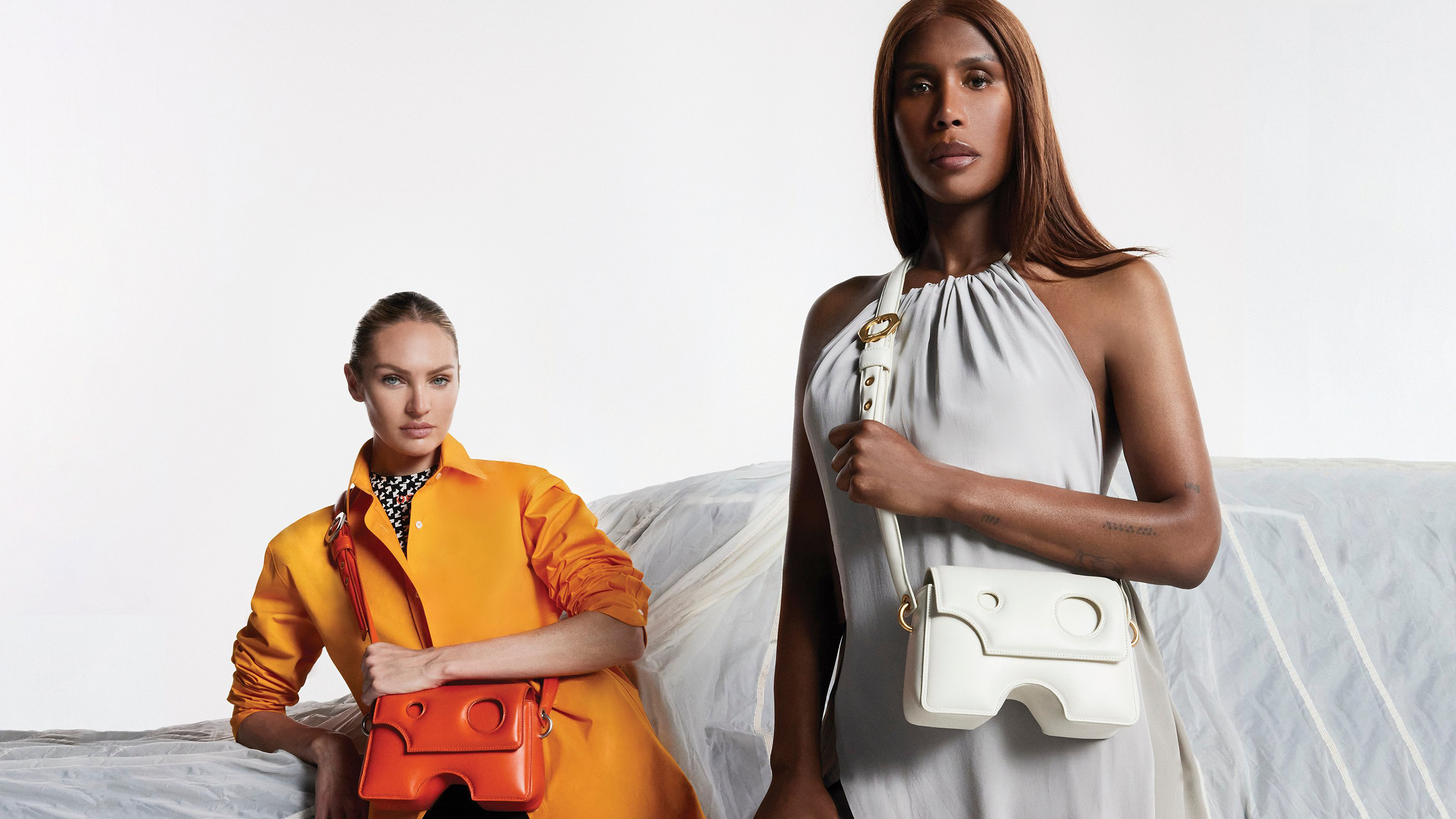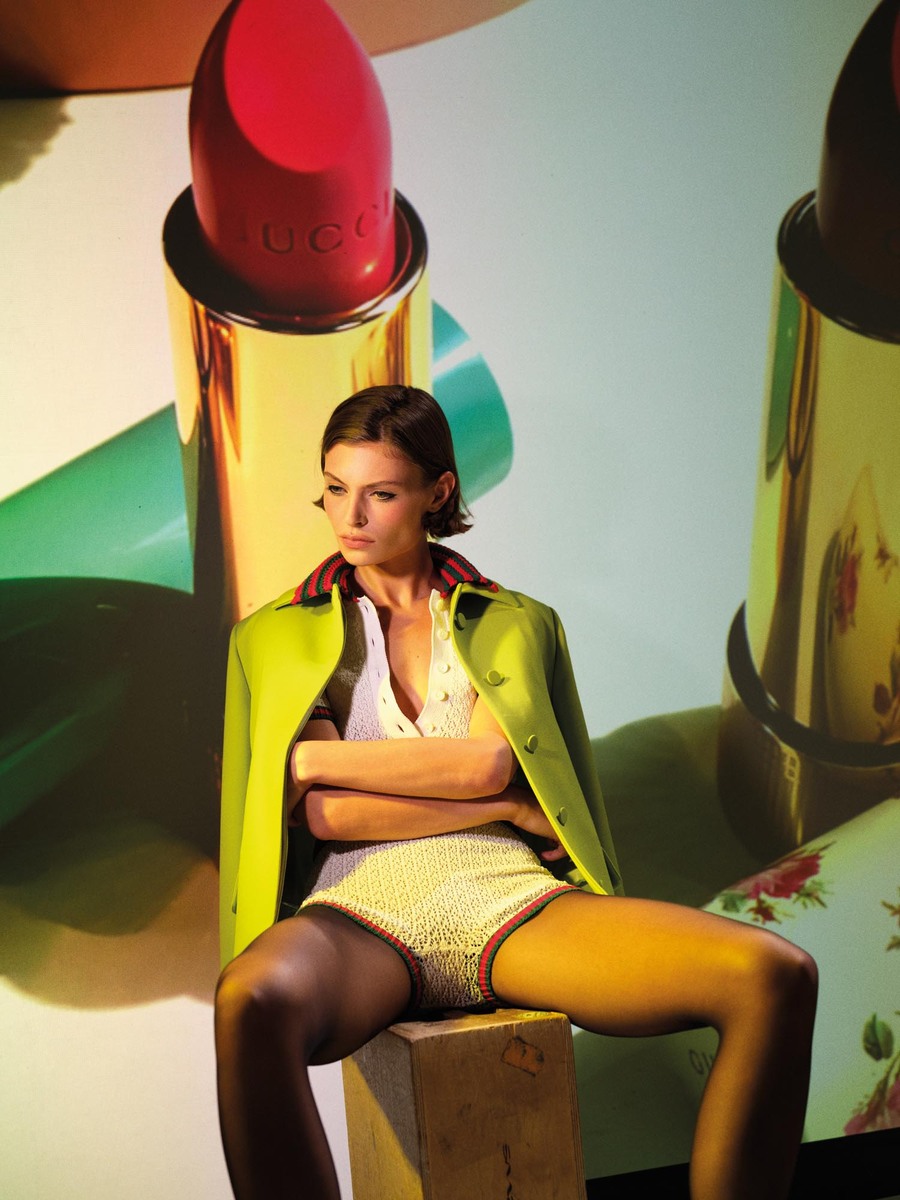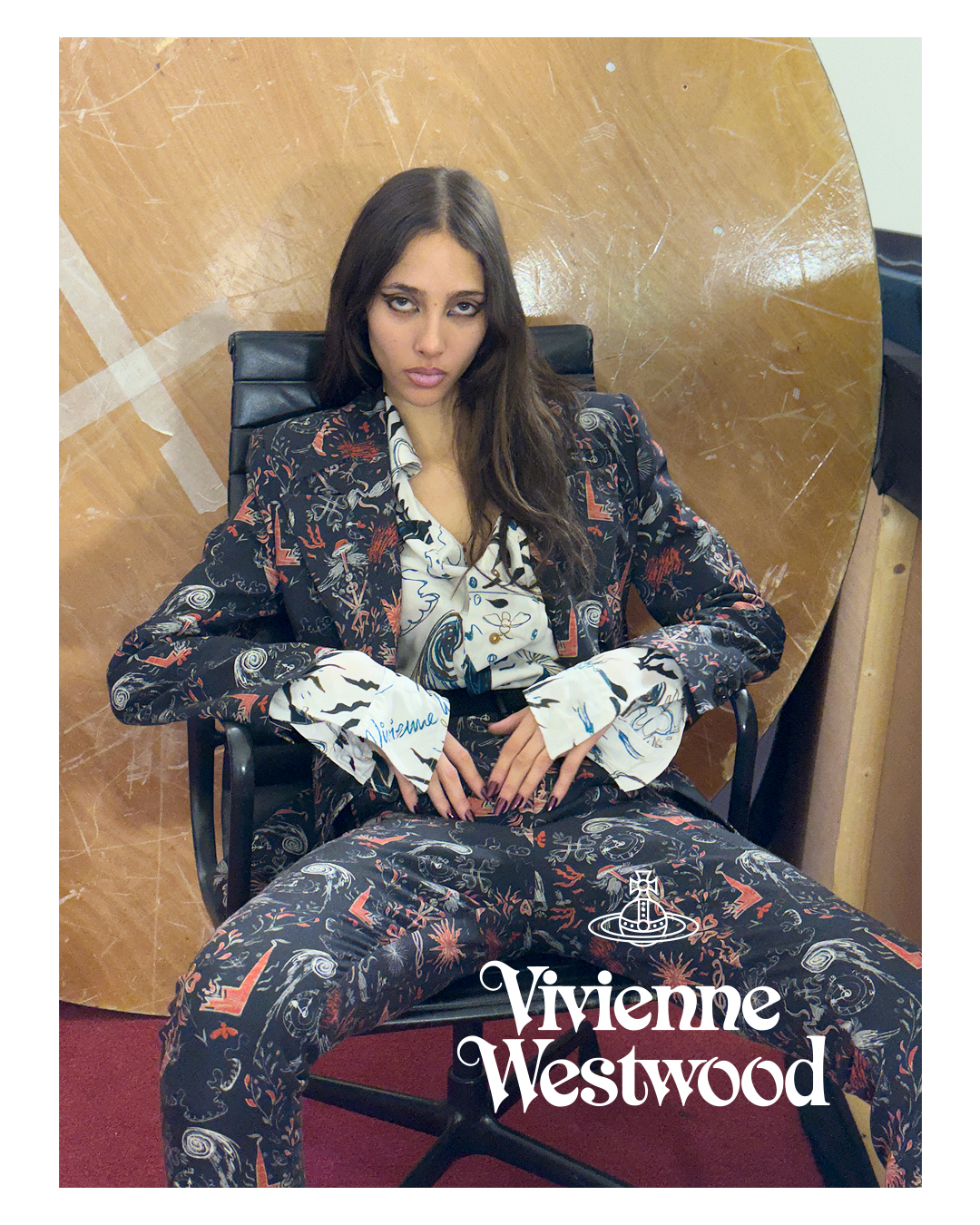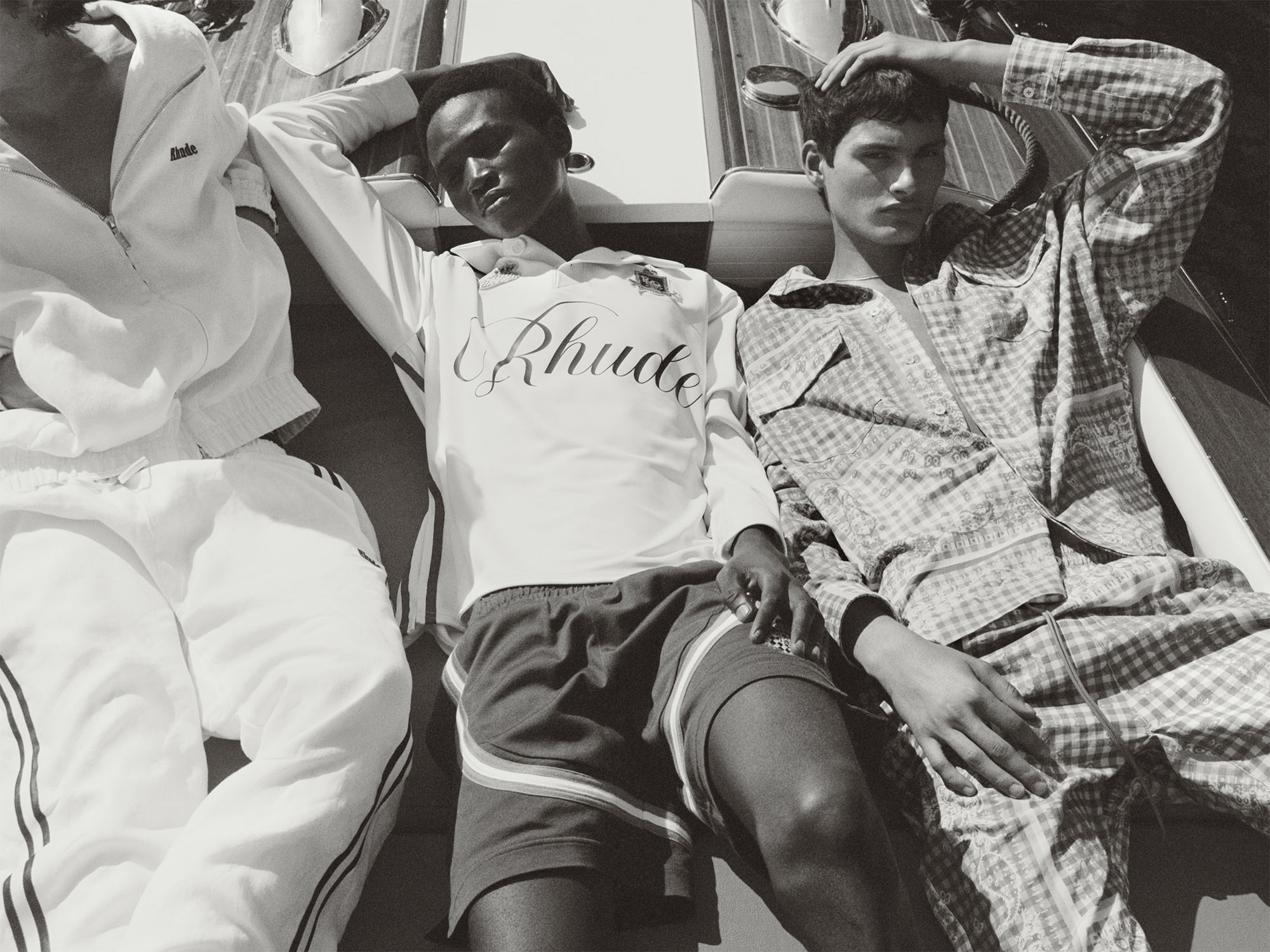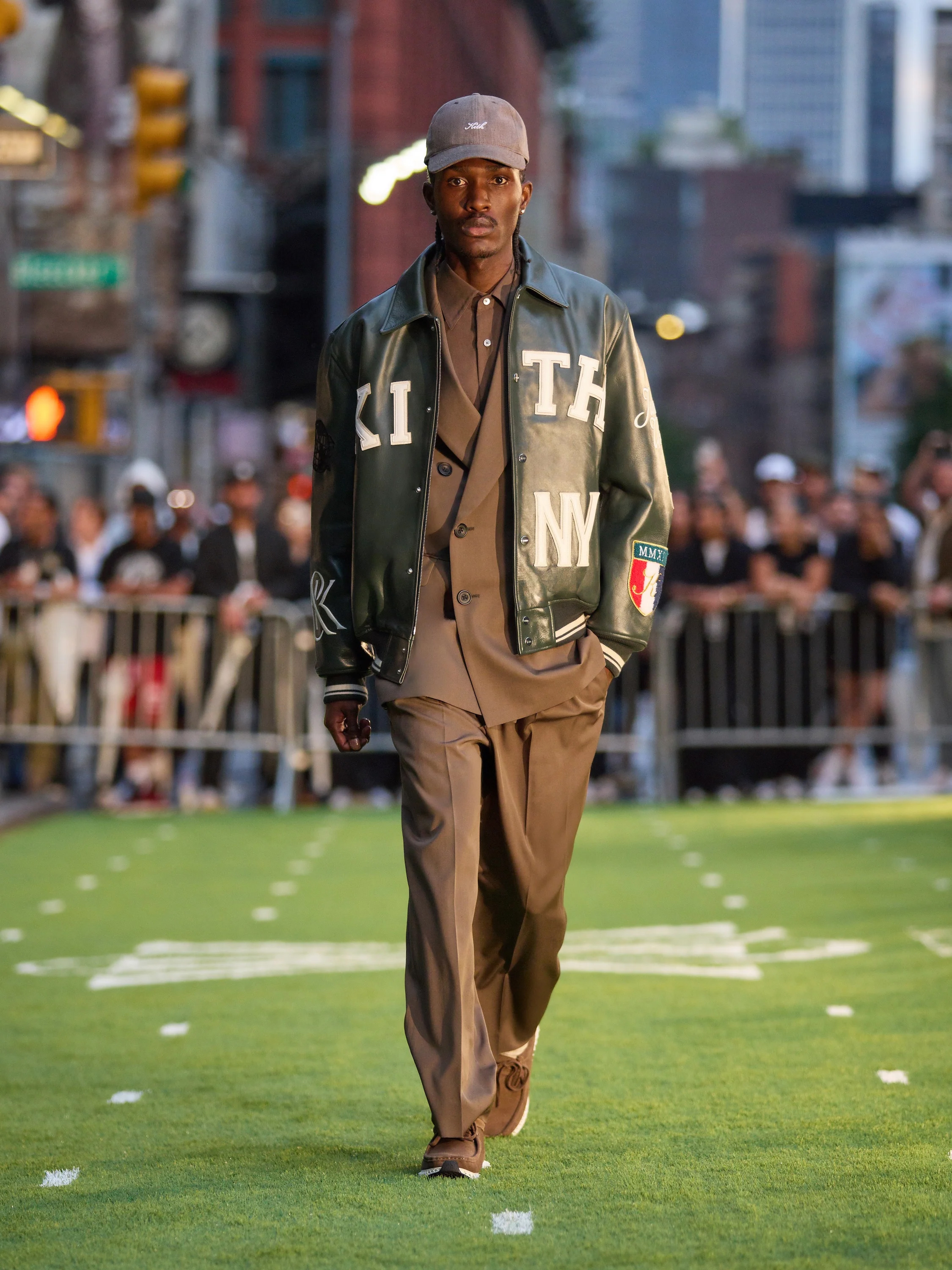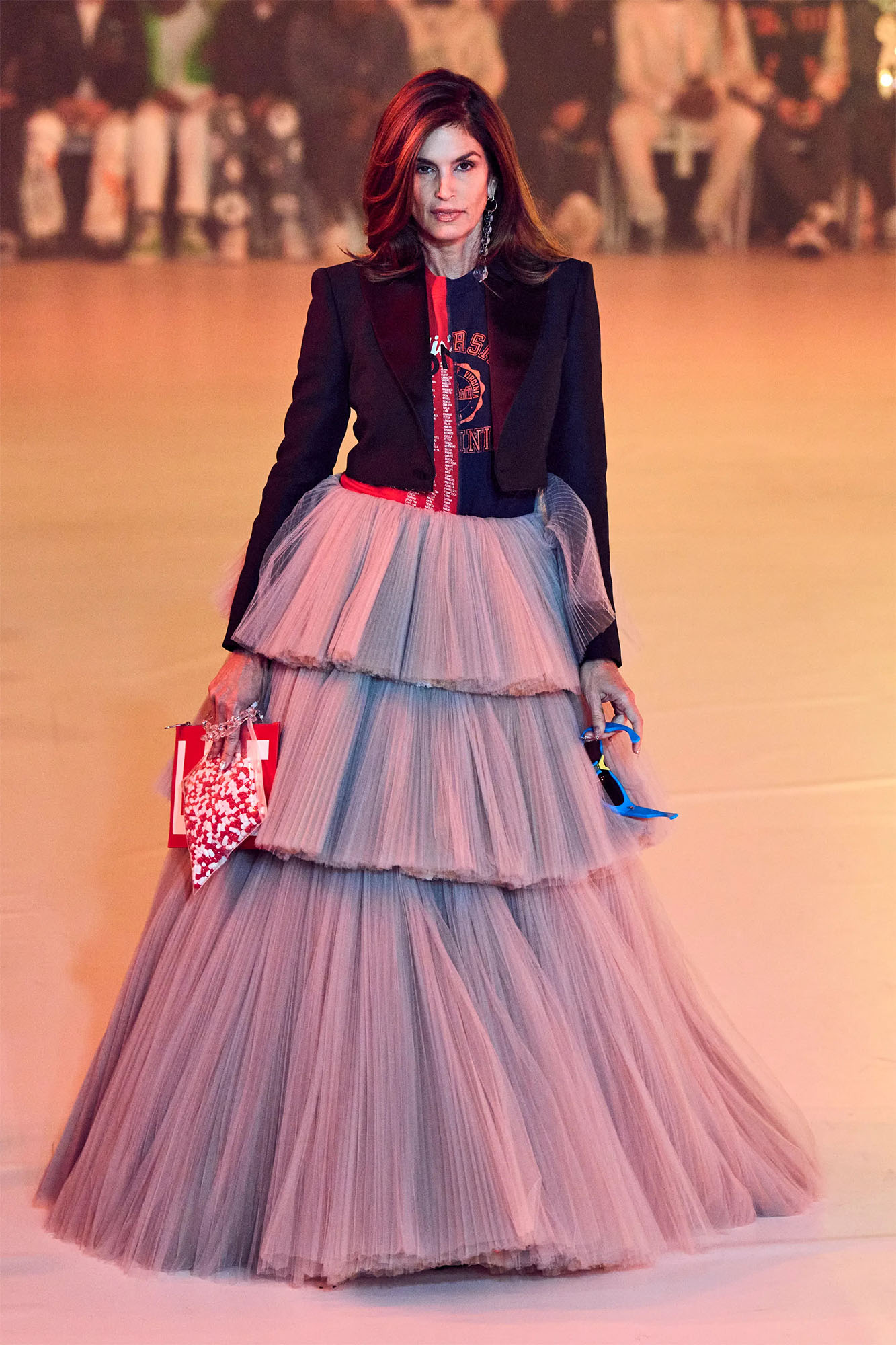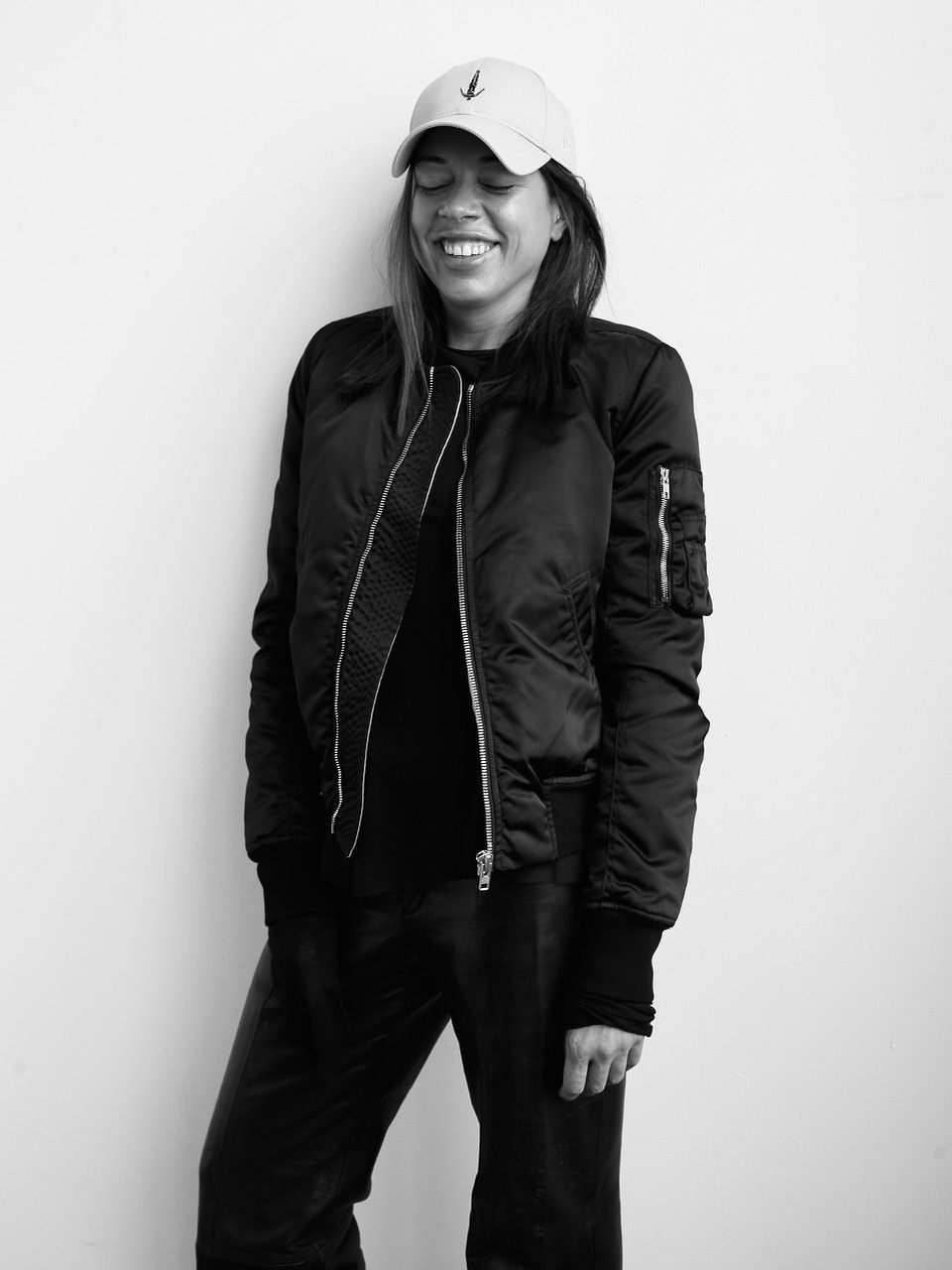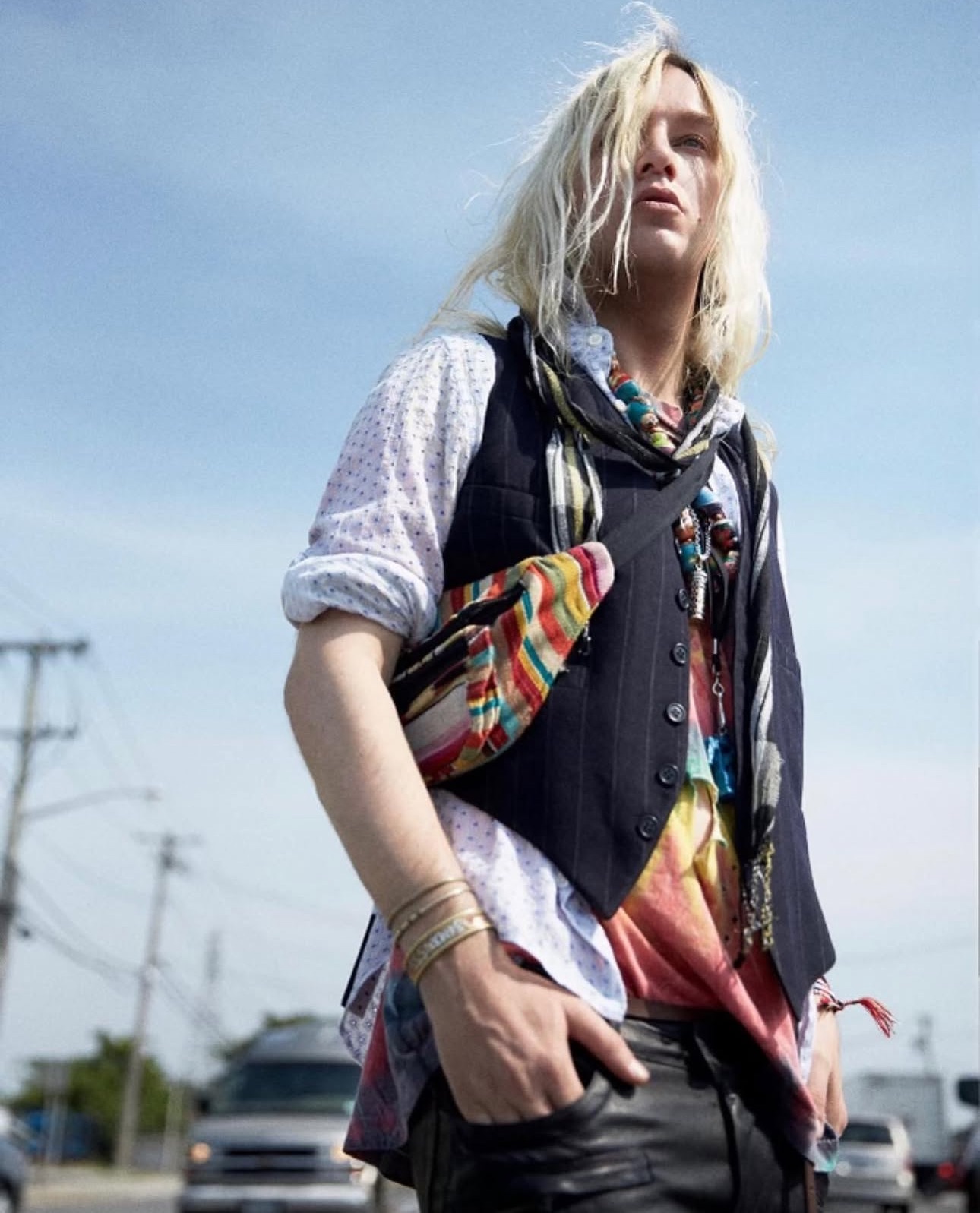Liz Goldson’s foray into casting was sparked by what her family might describe as a quarter-life crisis. At the time, Goldson quit swimming at the University of Florida to explore other passions while also deciding against a veterinary career. Her younger brother, on the other hand, was living back home in New York, cutting his teeth in the industry as a model, which fascinated her. By the summer of her junior year, she had pivoted from student-athlete to a casting intern working for the legendary Jennifer Venditti of recent Euphoria and Uncut Gems fame. Now, Goldson is known as a casting director whose rolodex of luxury clients ranges within the cool sect from Vivienne Westwood to Moncler, Heron Preston, Bally, Rhude, KITH, and more. Through her keen eye for spotting talent, understanding the zeitgeist and industry culture, she’s shaped integral moments during the rise of Off-White in the luxury market, coinciding with a dynamic working relationship with the late Virgil Abloh. As a frequent collaborator with Stevie Dance, Mario Sorrenti, and Juergen Teller, her editorial work features covers for indie darlings such as Purple Magazine, POP, Document, Re-Edition, and Revue Magazine. Goldson’s approach to casting is infused by her experiences growing up in New York State and spending time with her father’s side of the family in Jamaica. Ultimately, her rich cultural and multiracial identity has influenced the development of inclusive campaigns instrumental in shaping brand narratives. Models.com contributor Nia Shumake spoke with Goldson on her eye for talent, misconceptions around the casting process, and her most memorable collaborations.
You pivoted from a student-athlete to a casting intern. What was that adjustment like and what connected you to casting in the first place?
The adjustment in the beginning was terrifying. I had quit swimming a few months earlier and then decided that I didn’t want to become a vet anymore. I had all of these big changes happening at the same time. Every day I would think.. am I making the right decision? My younger brother was a model at the time, and he was scouted the year I quit swimming. He was telling me about a casting one day, and I thought, “Oh, that kind of seems like a cool job.” I have always been a people watcher, and it was something I had never really heard of. The summer of my junior year in college, I needed an internship for my degree and the University of Florida let me count a casting internship towards my animal biology degree. I did an internship that summer and I loved it so much that I tried to drop out of college my senior year. My mom said absolutely not.
Where else did you gain experience in casting and what other resources have helped you acquire industry knowledge?
I was extremely lucky that my first internship in casting was with Jennifer Venditti and I did that for two years. The reason why it was super special is that at the time, she was also doing a ton of street scouting. So I was able to see all the different aspects and types of casting directors in the industry. In the beginning, I spent a lot of time actually scanning her street casting files because she was making a book of the evolution of people that she found. Models.com was also a massive resource for me in the beginning because I was coming into this completely blind.
How would you say you trained your eye for spotting talent?
The longer that you do this job, it becomes quite instinctive. Being so involved in street casting really helped me hone in and understand what exactly to be looking for because sometimes it’s not so obvious all the time.
What would you say moves you when it comes to selecting talent?
I feel like there’s not an answer that fits for everybody. Obviously, looks are always going to come into play in my job, but there’s also the energy and it’s kind of hard to explain. Sometimes, you meet somebody and you think, “Wow, this person is incredible.”
Could you provide an example of that for me?
I remember the first time I met Vittoria Ceretti, she was 16 or 17, and I was working for Angus and Noah. She just came in and I really was a bit struck. It wasn’t just the looks, it was also this whole package.
What are some misconceptions you think exist about what a casting director does?
I think people that haven’t been exposed to the background of this industry really think that it’s like America’s Next Top Model where I sit behind a table all day and say yes and no to models and that’s it. I don’t think people understand how many other responsibilities casting directors have in terms of managing a client’s budget and working within that budget. Often, people are surprised when they find out I use Excel sheets.
How do you determine which clients you’d like to work with when it comes to a brand or campaign?
It’s a really organic process. I’m always very open to working outside of what people might think my wheelhouse is if something comes along. I’m always open to trying something once with somebody, and then you can figure out and see if it’s the right fit. Sometimes it is, sometimes it isn’t. But it’s very rare that, if a job opportunity comes along, they know I’m not interested. Technically, being a freelancer, things go up and down all the time. I don’t like saying no if I can, because you don’t know when that could change.
How would you say you attend to clients’ needs while also pushing against the grain of what’s considered ideal?
I think part of that is providing the right options for the client and giving a good pool for them to select from, so it doesn’t end up having to be such a push. Understanding what their end goal is and what they’re really after, which sometimes they can say one thing, but they mean something else. So that’s another thing, the more I work with certain clients, it becomes second nature. You know exactly what they want and it gets much easier. Of course, there are times when I do need to push, so there’s also knowing how to approach that conversation in the right way— where it still feels like a collaborative thing and not super one-sided.
The pendulum often swings back and forth regarding the use of models of color in the industry. I want to know how you think representation can go beyond tokenism.
It’s a tricky question because on one side, you want the casting to feel authentic to whatever the brand or client is, but that’s a bit of a double-edged sword for some because authenticity for some brands and clients could end up leading to a complete lack of diversity. I think it’s gotten much better from when I first started because the amount of black models available is so much more than when I was an intern and I feel like it was the same five girls that you saw in every single show. I think as a whole the industry is seemingly moving in the right direction, but I wish I could say that and really 1000% believe that.
Do you feel like the industry is embracing the idea of the supermodel again? Is that something that you think is coming back?
I hope so. I really hope so because I think we need that. The other thing that has been happening in the past and is very concerning for me is not having supermodels and having this never-ending train of new faces, which is not sustainable. It’s really unfair to the models as well. Sometimes people forget that a lot of these people that you’re seeing are teenagers, and they’re stopping their education because they got scouted and are getting thrown into fashion week. [Because] they had one great season, it would be very easy, especially if you’re between the ages of 17 and 20, to think “Wow, I’m doing so well, this is great. It’s all gonna work out.” Then a season later, it’s the complete opposite. You’re hearing from people who were begging for somebody, but the next two seasons later, they’re like, eh.
Do you feel like the supermodel at all has any relevance in the same way that it did? Who would you consider to be a supermodel today?
I think the supermodel has relevance today and I think the other thing that has happened was the influencer thing. There were a few seasons where it seemed like everybody was shifting to influencers, and that was a bigger deal— caring about the models’ Instagram followers. On one hand, it made a bit of sense because a modern supermodel would have a bunch of followers. That landscape is new territory for everybody, but I don’t think that followers should be dictating who’s a bigger model. Julia Nobis and Freja [Beja Erichsen] were supermodels I knew of when I was interning, and I don’t even know if (either of them) has an Instagram. It’s annoying that we have to also listen to the rest of the world.
Who have been your favorite collaborators in the past?
Definitely Virgil, Stevie Dance, and all the Off-White projects that we did. To be with them from the third season to the end was really incredible. Currently, I love working with Andreas [Kronthaler] and the Vivienne Westwood team. It just feels really creative. There’s Rhuigi [Villaseñor], Dan [Sablon], who’s now styling Rhude, because of the energy and the way that we all work together. I think every time we do a show or a lookbook, it always comes out really good because we’re so involved in everything. Most recently, when I did the Black Hair Reimagined Show in May, that was so much fun. I thought the whole concept was amazing.
You’ve spoken highly about Virgil and I want to know what made this particular collaboration so instrumental in your career.
I don’t think I was aware of how much confidence he gave me throughout our time, because he was always quieter and more reserved, but he completely trusted me. I remember in the beginning doing the early shows, stressing out so much, and thinking, “Oh my God, you don’t want to see anybody till I bring them for a fitting… what if I got it wrong?” And I kind of never did. Having that experience and really starting to trust myself, my eye, and my gut was massive for me. Being around him, you automatically wanted to do better because he was so inspiring. When he spoke, I would hang on to every word that he said, and the space that he gave the people he believed in, I think, was truly special.
What would you say would be one of your most memorable jobs?
Since we were just talking about Virgil, definitely the show where I had Selena Forrest open. It was the second or third show that I did with him. That was the first time that I got somebody where [I thought] they’re going to look at this and think wow, they’re serious. As each show progressed, it got bigger and bigger. Obviously, the tribute show that I did, I’ll never forget. I was in tears half the time, laughing the other half, but it was super incredible. I don’t necessarily know that they’re all good memories, but doing some of the shows when I was working with Angus [Munro] and Noah [Shelley], those are ingrained in my head. I learned how to really handle pressure there. A lot of people say to me, “You stay so calm.” Nothing really fazes me after working with somebody like that. You learn to recognize whatever the problem may be and deal with it and move on.
Black Hair Reimagined Show | Image courtesy of Streeters
What inspired you to open up the 2016 Off-White Paris show with Selena Forrest specifically?
I wanted Virgil to be taken seriously in Paris with the French agents and the people watching the show. I was cautious of Off-White, just feeling like another streetwear brand and I knew that it could become something more. Before the moment, I don’t think people would have expected Selena Forrest to be opening Off-White. I had to fight, because the models were very new to Virgil. So I had to prove why she should be the one to open the show. I had to convince the team at Off-White. With Selena, in real life, she’s this super cool, tomboy type of vibe, which I knew Virgil would think, “These are the type of people I want to be wearing my clothes.” That was really important too, having this certain type of energy that still felt very authentic.
Do you have any mentors or someone that you cite as an inspiration or blueprint for your career?
My mom, who does nothing in the fashion industry. From the time I was born to seven or eight, she went back to college twice. I remember going to her night classes at Hofstra and I’ve seen her progress– having three kids and starting a new career and then not liking that and starting from square one to where she is now. I think a lot of my work ethic comes from her because she never stopped and taught me if you really work at something, it won’t happen overnight –you have to be patient.
Do you think that the presence of Black Americans has regressed or progressed in the modeling industry?
Globally, for sure, when you look at campaigns and editorials that are coming out, I would say it’s regressed for Black American models. I also think the recent progression of African models has been so massive that the demand for Black American models could appear smaller by comparison. However, when shows start and there are new faces, it’s very rare that I’m getting new Black American models compared to Africa, Brazil, or even the Caribbean. There was even a time when everybody was coming from Jamaica, yet a year ago, I was working with Rhude, and while talking to Dan, he mentioned that we needed Caribbean boys. I was trying to look through the packages to see who was in Paris, but there weren’t many. Overall, there has definitely been a bit of a regression, and I’m not sure why that is.
